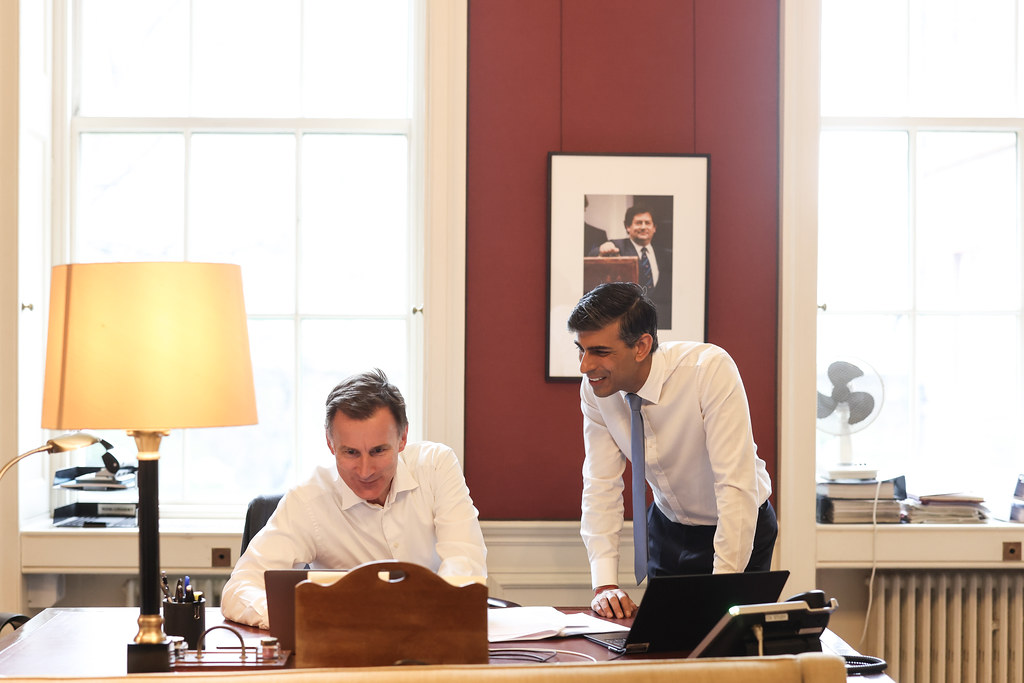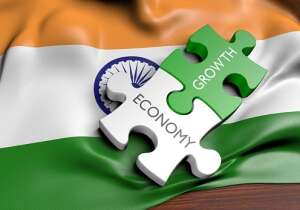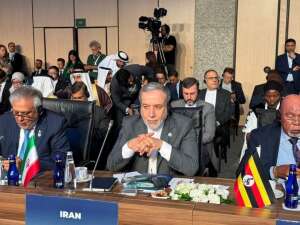Jeremy Hunt will use his final budget before the election to promise voters lower tax and higher growth, with the chancellor set to announce a 2p cut to national insurance…reports Asian Lite News
Jeremy Hunt will use his final budget before the election to promise voters lower tax and higher growth, with the chancellor set to announce a 2p cut to national insurance, even at the expense of public services.
Sources said Hunt had decided to reduce national insurance for the second time in less than six months, having defied calls from some in Downing Street and across the party for a more expensive pre-election income tax cut.
The chancellor will frame the move as a push for growth, opportunity and prosperity, having brushed off concerns among many Tories that cutting national insurance would not be enough to overturn the party’s 20-point deficit to Labour in the polls.
But he is likely to impose strict spending limits to come in after the election to help pay for the tax cuts, causing some in his party to worry that voters will punish them for cutting services rather than rewarding them for lowering taxes.
Hunt will say: “Conservatives know lower tax means higher growth. And higher growth means more opportunity and more prosperity. But if we want that growth to lead to higher wages and higher living standards for every family in every corner of the country, it cannot come from unlimited migration. It can only come by building a high-wage, high-skill economy. Not just higher GDP, but higher GDP per head.”
In a message designed to bolster the pre-election message that a Labour government would take the country backwards, Hunt will add: “Instead of going back to square one, our plans mean more investment, more jobs, more productive public services and lower taxes.”
However, Labour will attempt to focus the debate on declining living standards. Rachel Reeves, the shadow chancellor, said: “The Conservatives promised to fix the nation’s roof, but instead they have smashed the windows, kicked the door in and are now burning the house down.”
In his post-budget response, the Labour leader, Keir Starmer, will say taxes will rise for most families even after the budget, given that thresholds for national insurance and income tax continue to be frozen in cash terms.
An analysis by the Resolution Foundation thinktank on Tuesday showed that only those paid between £27,000 and £59,000 a year would be better off as a result of both the autumn statement and Wednesday’s budget. Those paid £16,000 would lose almost £500 a year, as would those receiving more than £60,000.
Hunt and Rishi Sunak have spent the last few weeks trying to find enough money for a tax cut on the scale of last November’s autumn statement, when the chancellor reduced national insurance from 12% to 10%.
The chancellor has been hampered by forecasts from the Office for Budget Responsibility that showed he had less money than he had hoped to be able to spend without breaking his promise to have debt beginning to fall in five years’ time.
Hunt is preparing however to announce a series of targeted tax rises to help pay for the national insurance cut. They include limiting tax breaks to non-doms, introducing a levy on vaping products, increasing taxes on short-term holiday lets, extending the energy windfall tax and increasing taxes on business-class flights. Together these measures are expected to raise about £5bn a year.
More controversially, Hunt is preparing to defy economists’ warnings of an impending public services crunch and reduce his forecasts for departmental spending after the election.
The plans he set out in November assumed departmental budgets would rise 1% above inflation each year after the election, all of which would be soaked up by protected departments such as health and defence. However, the chancellor is set to reduce that figure to just 0.75%, meaning unprotected areas such as justice and local government would face cuts of up to 20% over the course of the parliament.
The plans have sparked concern among some in the Tory party, who point to a series of polls showing that voters would prefer higher public spending and higher taxes than the promise of immediate tax cuts.
“The tax cuts are going to require even more unrealistic public service cuts post-election,” said one Tory insider. “There is already a big argument about whether the public will react more badly to that than they do positively to the tax cuts themselves.”
Hunt decided to reduce national insurance despite some in No 10 pushing for a cut to income tax instead, which they argued would be more easily understood by voters. Since announcing November’s national insurance move, the Conservatives have fallen one point further behind Labour in the polls.
One Tory MP said: “It didn’t work last time round, what makes them think it will be any different this time?”
But the chancellor argued that focusing on national insurance would be less inflationary, and unlike income tax would apply to the whole of the UK.
Many Tory MPs also expect the prime minister to promise further tax cuts in the election manifesto, including as large as 4p from income tax.
“It would create a clear dividing line with Labour,” said one. “There’s no way that they could match that.”
Hunt is also preparing to make other tax cuts on Wednesday, including another freeze in fuel duty.
Sources have said he is also likely to continue the freeze in alcohol duty that he announced last year but is set to run out this August.
Sunak will visit two pubs in different parts of the country this week, sparking speculation among industry sources that the chancellor could go even further and announce a temporary cut in VAT and business rates for the hospitality industry. Pubs, restaurants and hotels have been campaigning heavily for such a move given that so many hospitality businesses have closed in recent years as a result of spiralling costs.
ALSO READ-Labour seeks deeper UK-India cooperation













